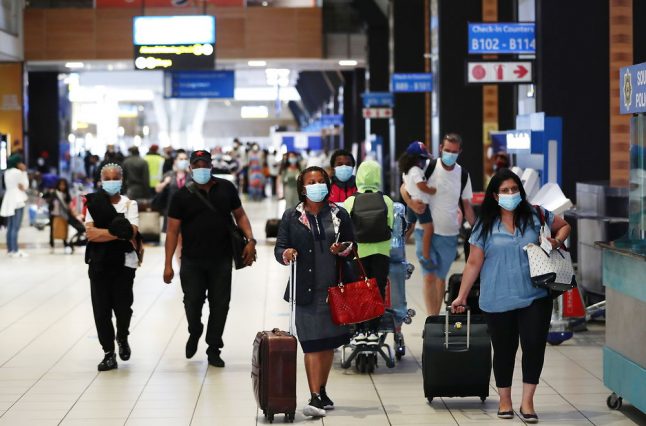South Africans and other foreign nationals who reside in Denmark will be allowed to return to Denmark from South Africa under the restrictions.
Denmark has not recorded any cases of the new variant, which was detected by South African authorities in mid-December and has since been found in a number of other countries.
The South African variant and another which has emerged in Britain are said to be more infectious versions of the virus, and have prompted widespread concern. The two variants are not the same as each other.
Denmark's decision came into effect Wednesday and will last until January 17th.
“This means that foreigners residing in South Africa generally will be refused entry to Denmark during this period,” the justice ministry said in a statement late Tuesday.
The following groups from South Africa can be exempted and granted entry to Denmark:
- Primary carers for children under the age of consent (upon documentation of a negative Covid-19 test taken within 24 hours of arrival in Denmark)
- Family or partners to seriously ill or dying persons in Denmark (upon documentation of a negative Covid-19 test taken within 24 hours of arrival in Denmark)
- Inward travel for the purpose of goods transport
Denmark, which is under a partial lockdown since mid-December, has almost 90 cases of the new British variant.
It has already barred entry to arrivals from Britain except for Danish nationals and permanent residents, who must present a negative virus test.
READ ALSO: Residents of Denmark returning from UK must take Covid-19 test within 24 hours of travel
Authorities said Tuesday they were toughening coronavirus restrictions and urged people to avoid social contacts.
“Stay at home as much as you can, don't meet people outside your household, those close to you,” Prime Minister Mette Frederiksen said at a press conference.



 Please whitelist us to continue reading.
Please whitelist us to continue reading.
Member comments